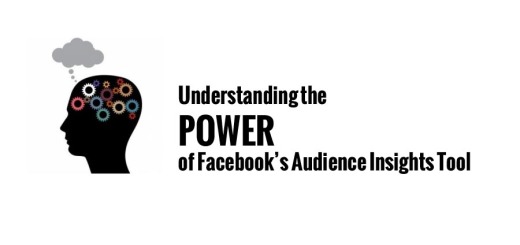The Power of Habit: Why We Do What We Do in Life and Business
by Charles Duhigg
This was the first book I read in 2013, and remains of of the best and most influential in my list. Charles Duhigg mixes great narratives about the habits we cultivate, and the hidden psychology behind our actions. The book is broken into three sections. The first tackles the habits of individuals, the second part dives into the habits of organizations, and the final section deals with society as a whole. For most people, the first few chapters are the most captivating, as they deal with how to identify the cue, trigger, and reward that make up a “habit loop”. Duhigg also pulls in all sorts of scientific experiments and studies that explain the psychology behind our preferences, and explores whether free will is really something we have control over.
Habits are powerful, but delicate. They can emerge outside our consciousness, or can be deliberately designed. They often occur without our permission, but can be reshaped by fiddling with their parts. They shape our lives far more than we realize—they are so strong, in fact, that they cause our brains to cling to them at the exclusion of all else, including common sense.
Link to the book: The Power of Habit: Why We Do What We Do in Life and Business
The Lean Startup: How Today’s Entrepreneurs Use Continuous Innovation to Create Radically Successful Businesses
by Eric Ries
This book should be required reading for anyone looking to start a new business in today’s technology-driven world. Eric Ries frames a schema for modern business development and growth based on a “running lean” philosophy. The lean business model can be adapted to almost any industry, and proves most useful in an startup situation, where agility and responsiveness go hand in hand with building a fresh business. It’s based off a “build, measure, learn” feedback loop, where the idea is to continually improve by gaining insight through careful testing and calculated changes to the product. It doesn’t matter whether you’re starting a vaporizer business, selling wine, or hocking lemonade on the side of the street. These ideas are universal.
The basic idea is to create a minimum viable product with the least amount of effort required to bring something tangible and of value to the market. Then, you test how well it performs. Using those measurements and results, you continually improve the product-fit for your market. The lean philosophy stems from the increased “flattening” of technology, and mass-availability of tools that we can incorporate into our products to measure key metrics about our customers and market. In the past, a product launch was much more intensive, and was usually backed by funded market research.
The critical first question for any lean transformation is: which activities create value and which are a form of waste? Once you understand this distinction, you can begin using lean techniques to drive out waste and increase the efficiency
Link to the book: The Lean Startup
80/20 Sales and Marketing: The Definitive Guide to Working Less and Making More
by Perry Marshall
Some of the most profound ideas are also the simplest, and that’s what 80/20 offers. It’s a work of simple genius. On a basic level, the 80/20 principle, also known as the “Pareto Principle” says that 20% of tasks we do bring 80% of the results. When you take that idea further, and explore the tasks accounting for the 20%, you can hone in on the specific actions that bring those results, and optimize those even further. Because the 80/20 principle works on power laws, once you focus on improving the 20% of tasks, you reap exponentially higher rewards. As Perry Marshall points out, “1000:1 leverage points are hiding everywhere”. This book is filled with little golden nuggets of wisdom, and I also loved how Perry explains these principles in various contexts. For example, he’s a huge fan of Google Adwords, which offers a powerful way to test, measure, and improve advertising campaigns and conversions. He applies the principle to sales strategies, copywriting, advertising, and many other aspects of our daily life. In fact, one of his overarching notions is that we can apply the 80/20 rule to just about anything we do in life.
Handy rule of thumb: 80/20 says that 20 percent of the people will spend 4 times the money. It also says that 4 percent of the people will spend 16 times the money. Memorize this—it’s one of the most powerful facts you could ever know about business.
Link to the book: 80/20 Sales and Marketing: The Definitive Guide to Working Less and Making More
Made to Stick: Why Some Ideas Die and Others Survive
Books like this offer great insight into the psychology behind successful product launches and viral advertising campaigns. Like other’s have done (Contagious, The Tipping Point for example) Chip Heath lays out a schema that you can follow to determine how well something might “stick”. These principles include simplicity, unexpectedness, concreteness, credibility, emotions, and stories – or SUCCES for short. He lays out specific examples, like the Subway Jared campaign, which covered all those bases. In our modern marketing age, where old-school executives pitch their Powerpoint presentations, and spam customers with promo emails, these notions certainly come in handy when it comes to influencing them to adapt to the new age of inbound marketing. What I like about this book is that they apply each of these notions to specific examples that you can relate to, and understand.
To summarize, here’s our checklist for creating a successful idea: a Simple Unexpected Concrete Credentialed Emotional Story
Link to the book: Made to Stick: Why Some Ideas Survive and Others Die
Growth Hacker Marketing. A Primer on the Future of PR, Marketing, and Advertising
by Ryan Holiday
This short book serves as a primer for effective modern marketing strategies that fly in the face of the traditional PR firm approach. The term “growth hacker” was made coined by Sean Ellis and made even more popular by Ryan Holiday, who is the Director of Marketing for American Apparel. The principles he outlines have been used by successful startups like AirBnB, Dropbox, Hotmail, and Uber to name a few. At its core, growth hacker marketing is a way to reach your core market and distribute an idea in the most efficient way possible. A recent blog article stirred up a bit of commotion about the notion of a “growth hacker” as a sort of charlatan term for everyday tasks that companies already do. Regardless of what you want to call it, growth hacking pairs well with the lean business concepts, behavioral economics, and modern permission-based marketing strategies.
A growth hacker is someone who has thrown out the playbook of traditional marketing and replaced it with only what is testable, trackable, and scalable. Their tools are e-mails, pay-per-click ads, blogs, and platform APIs instead of commercials, publicity, and money. While their marketing brethren chase vague notions like “branding” and “mind share,” growth hackers relentlessly pursue users and growth—and when they do it right, those users beget more users, who beget more users.
Link to the book: Growth Hacker Marketing: A Primer on the Future of PR, Marketing, and Advertising (APenguin Special from Portfolio)
Predictably Irrational
by Dan Ariely
I love learning about consumer psychology, and specifically, why we make decisions and how our choices are influenced by internal and external forces. This book pairs nicely with the above reads, and offers a much more focused, and sometimes academic look at the hidden forces that shape our decisions. Ariely is an MIT professor who shares all sorts of keen insights about the ways that people unconsciously limit themselves. In doing so, the goal is to help us understand the reason for irrational behavior, so we can better recognize how certain internal and external forces nudge us to behave differently without even realizing it. He takes a strong focus on behavioral economics – placing his notions in the context of consumerism, and referencing study after study to prove his points. This book will forever shape your understanding of market behavior, and force you to take a more critical look at your own behaviors in a number of different contexts.
With everything you do, in fact, you should train yourself to question your repeated behaviors.
Link to this book: Predictably Irrational, Revised and Expanded Edition: The Hidden Forces That Shape Our Decisions









Thanks for sharing this list! As a small business owner myself I am always looking for inspiring and
insightful books out there to help me and my business to grow (and
succeed!). I find my main problem is that I try and do it all; I’m a bit
of a control freak, and because of this I don’t rest. I recently read a
fantastic book for entrepreneurs out there that really helped to put
things into perspective. The book is called “Liber8 Your Business” by
author Laura Humphreys (http://liber8yourbusiness.com/).
The website allows you to sample the book before you buy it! The author
on her own is reason enough to read this because she started as a
secretary in an advertising agency and went on to build a multimillion
dollar business; her motto is: if a secretary can do it, anyone can! It
was great to read about someone who I can relate to and respect. The
book focuses on a revolutionary planning technique of planning
backwards! She recommends setting up an end goal and then working
backwards from there setting smaller goals along the way. The book is
super helpful and includes exercises, tutorials, and other useful tools
(including a workbook!) that helps with building your own unique plan. I
think it’s a fantastic interactive read and cannot recommend it enough.